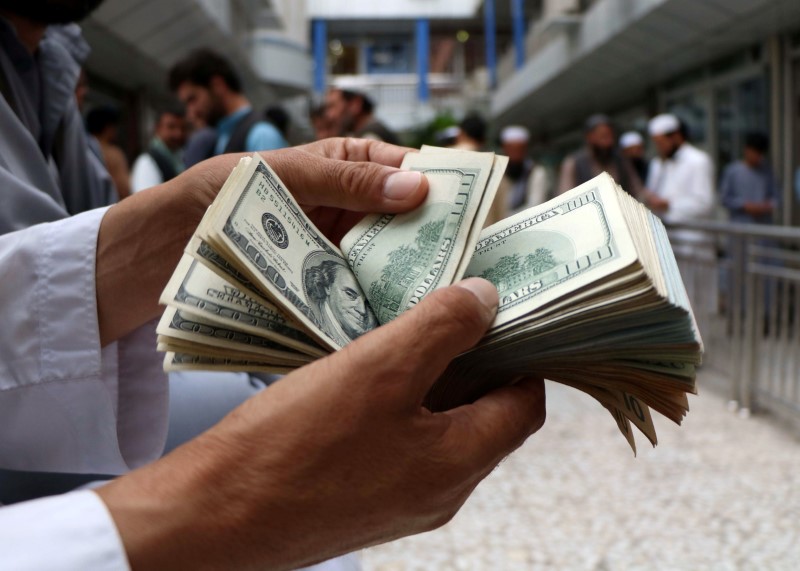By Peter Nurse
Investing.com - The dollar edged higher in early European trading Monday, but remained near a one-week low as rising Covid-19 cases and slumping U.S. consumer confidence could pressure the Federal Reserve to delay tapering its bond-buying program.
At 2:55 AM ET (0755 GMT), the Dollar Index, which tracks the greenback against a basket of six other currencies, traded less than 0.1% higher at 92.550, but this is still around 0.5% lower than the levels seen at the end of last week.
USD/JPY was 0.2% lower at 109.38, EUR/USD was marginally lower at 1.1789, GBP/USD fell 0.1% to 1.3854, while the risk-sensitive AUD/USD fell 0.4% to 0.7340 after Australian Covid-19 lockdowns were extended over the weekend.
A University of Michigan confidence survey released late last week showed U.S. consumer sentiment sliding to the lowest level since 2011 amid an acceleration in Covid-19 cases caused by the fast-spreading delta variant.
The number of children hospitalized with the coronavirus in the United States hit a record high of just over 1,900 on Saturday, an alarming development given that the virus has so far taken more of a toll on the older and unhealthier parts of the population. .
This is causing traders to pause for thought after inflation and employment numbers, also released last week, added to the growing expectations of an asset-tapering announcement from the Federal Reserve by the end of this year.
The Fed's central banking conference in Jackson Hole, Wyoming, later this month is now firmly in the spotlight, but ahead of that Chairman Jerome Powell speaks on Tuesday and the central bank releases minutes of its last policy meeting a day later.
Still, the dollar is trading in narrow ranges with the collapse of the Afghan government pointing risk-averse traders towards safe havens.
“Geopolitical developments in Afghanistan over the weekend are dominating the world’s headlines but it is probably too early to assess what could be the fall-out in the FX market,” said analysts at ING, in a note.
NZD/USD fell 0.2% to 0.7022 ahead of a Reserve Bank of New Zealand's policy meeting on Wednesday, which could result in the first hike in the country’s benchmark interest rate since 2014 after last week’s strong employment figures.
